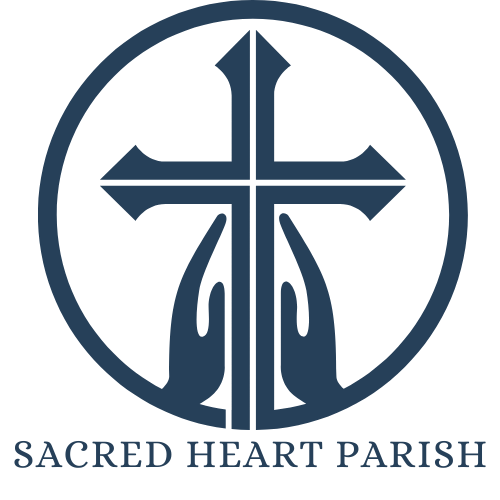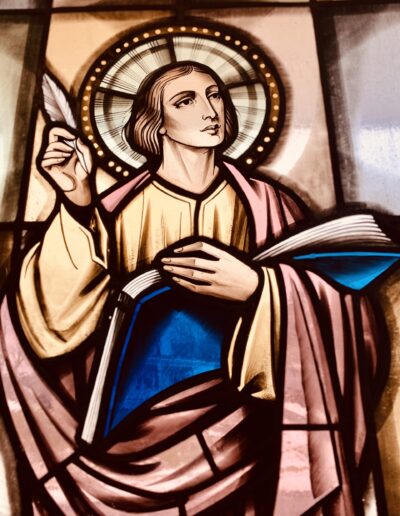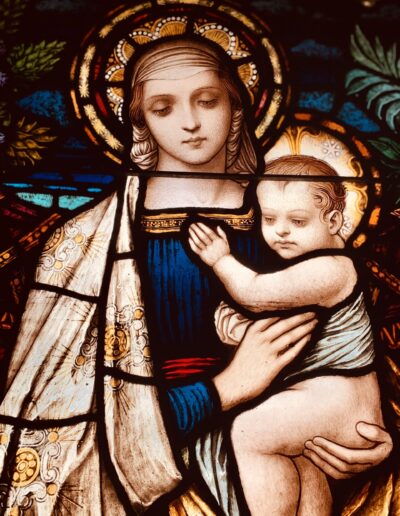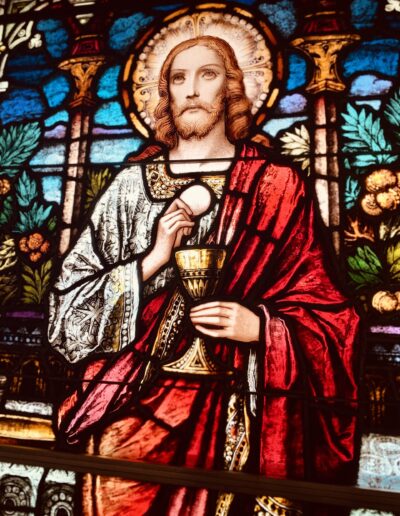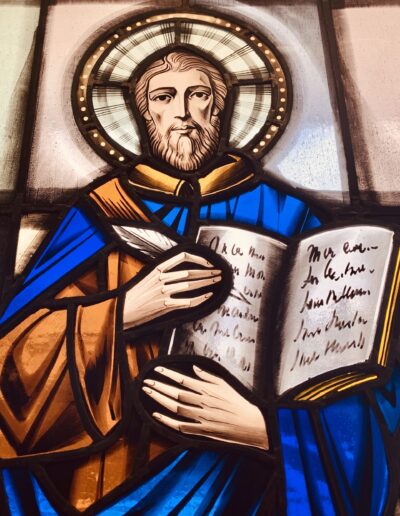Sacraments
The sacraments are efficacious signs of grace, instituted by Christ and entrusted to the Church, by which divine life is dispensed to us.
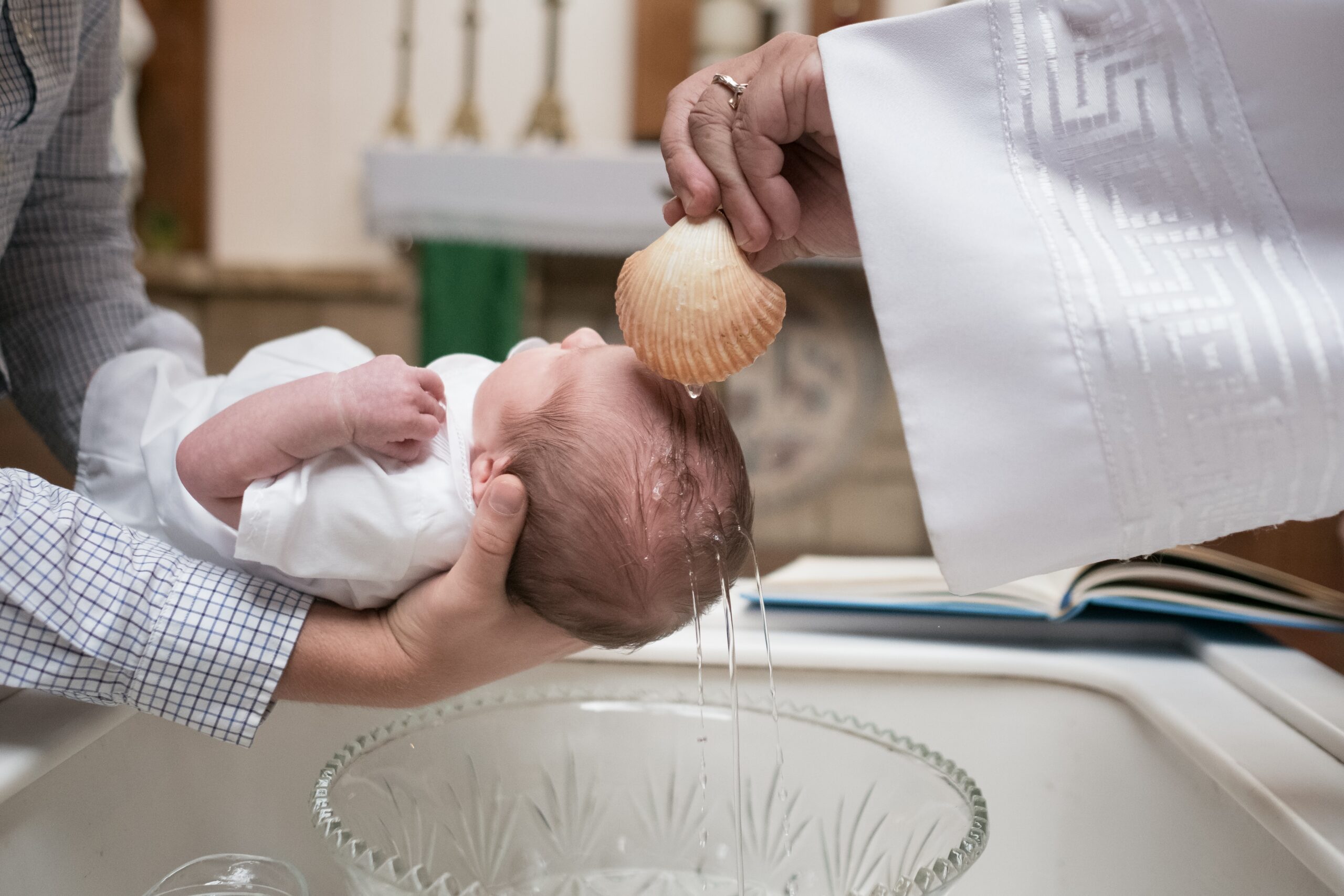
Baptism
Under normal circumstances, babies should be baptized within two months or so of being born. Parents wishing to baptize their children should make an appointment to meet with the pastor as soon as possible after making that decision, and at least one month prior to a desired date . Having the meeting before the child is born makes perfectly good sense.
Baptism prep meetings usually last an hour to an hour and a half, depending on how much parents understand the nature and meaning of the sacrament, its celebration, and the responsibilities that the Church asks them to embrace. There are a few forms for parents to fill out and return to the parish, and the pastor asks that godparents be chosen and certified by their respective parishes before a date for the baptism is scheduled.
The sacrament of baptism is the primary sacrament of the Church and the foundation for Christian life because it is through baptism that a person actually becomes a Christian, a member of the Body of Christ, the Church.
The baptism of children who have reached the age of reason (~7 years old) requires preparation of the children themselves so that they can understand, at an age appropriate level, the sacrament they will receive. Parents should schedule a meeting with the pastor to formulate a preparation plan.
The baptism of adults happens through the Rite of Christian Initiation of Adults, or RCIA program. Folks who have a desire to become Catholic, or who at least think that they might be interested in finding out more about becoming Catholic should contact the pastor to begin the conversation.
Holy Communion
After baptism, Holy Communion or the Eucharist is the most important sacrament for Catholics. The Fathers of Vatican II called the celebration of the Mass the source and summit of the Christian life. It is the sacrament through which Catholics enter into and express their full communion with the Church, and are spiritually nourished by the Body, Blood, Soul and Divinity of Jesus Christ.
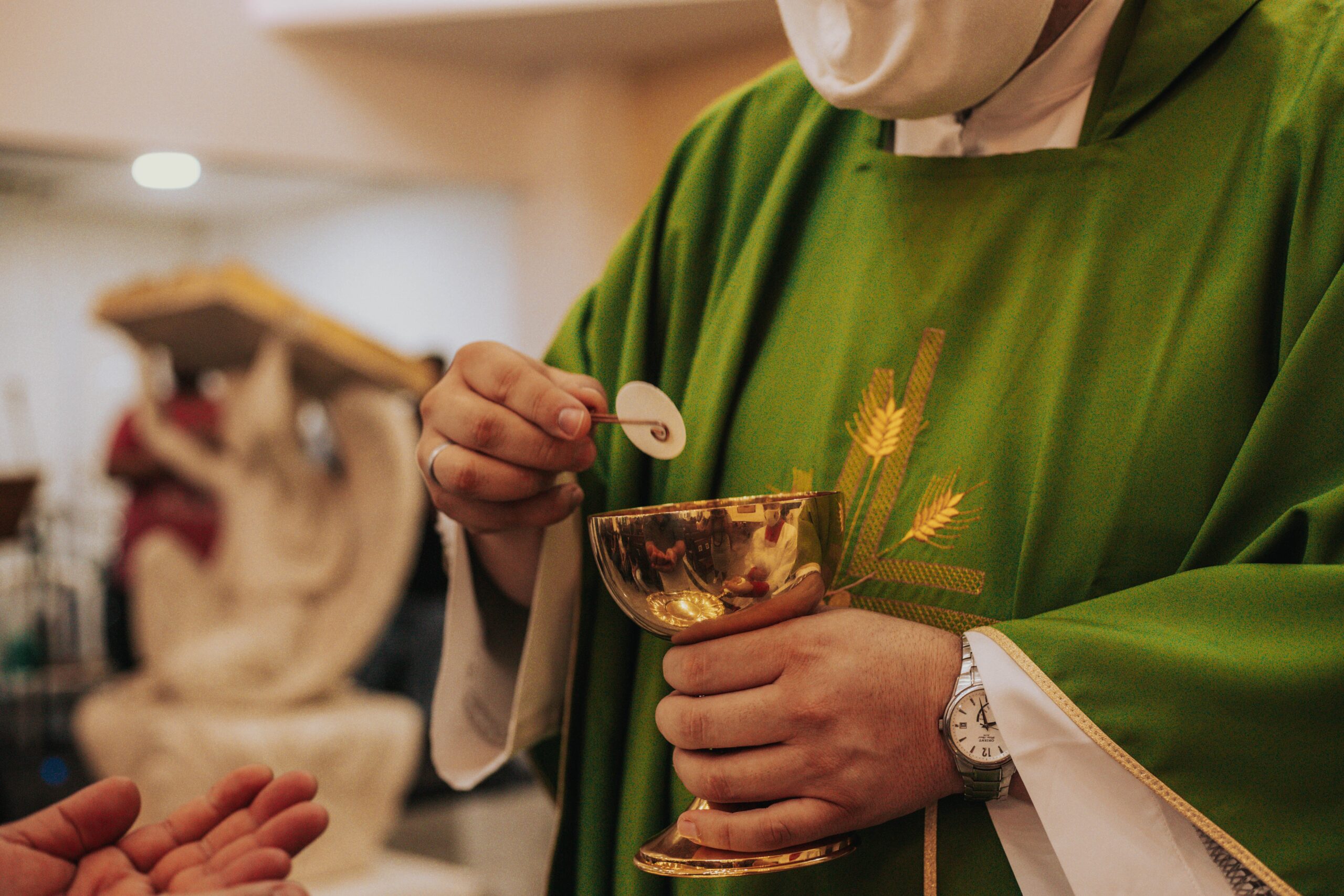
First Holy Communion is celebrated in second grade and requires at least one year of faith formation (religious instruction) prior to beginning the year of preparation for Holy Communion. During their second grade year, children are also prepared for their first celebration of the sacrament of Reconciliation, which they typically receive during the Advent or Lent before they receive First Holy Communion.
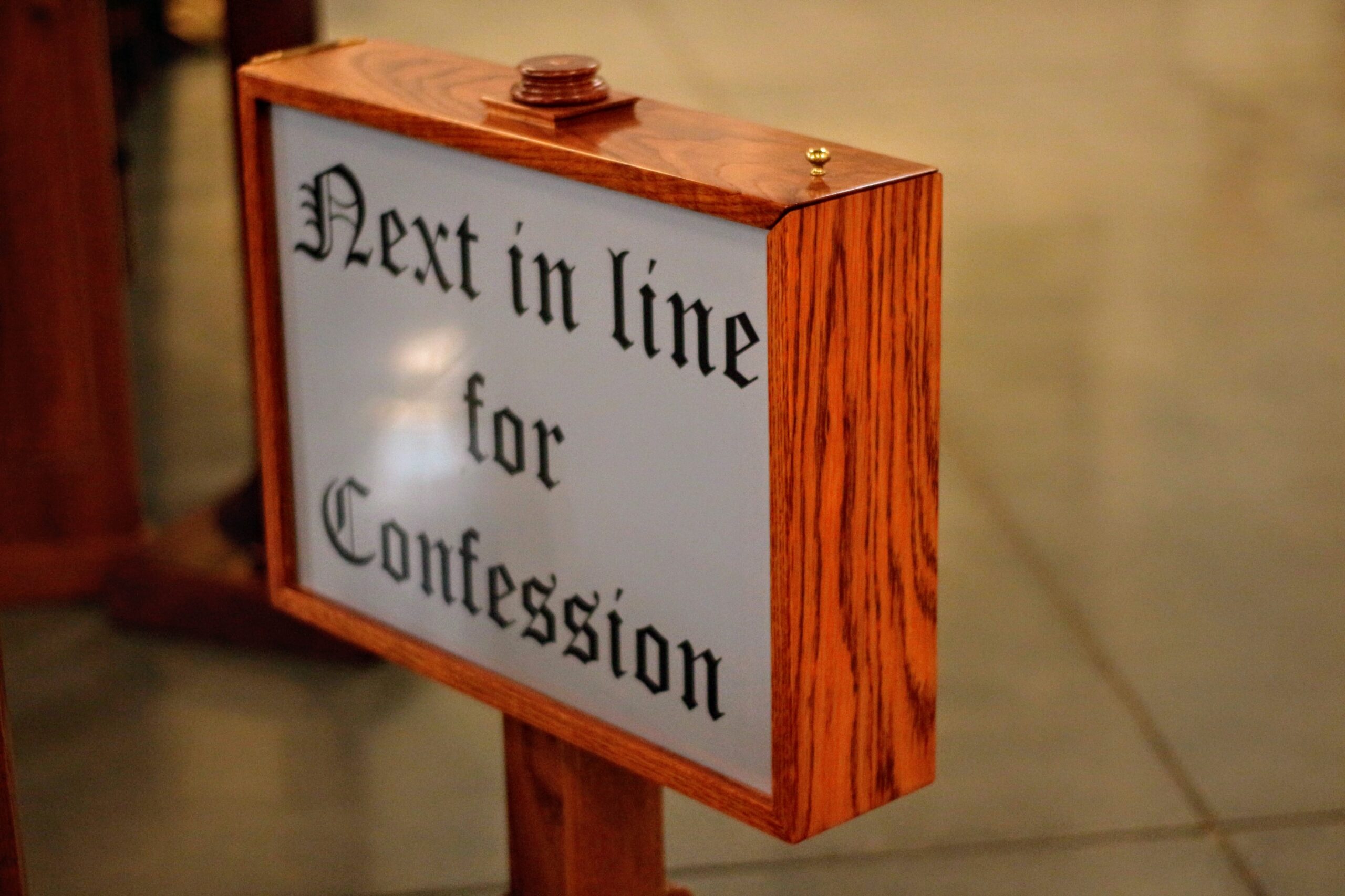
The sacrament of Reconciliation is available at:
Sacred Heart Church
Saturdays from 3:30pm-4:15pm
St. Philip Neri
Sundays from 7:30am-8:00am
Reconciliation
The sacrament of Penance or Reconciliation, informally called ‘going to confession’, is available weekly at Sacred Heart Church and St. Philip Neri, or by appointment.
Under normal circumstances, anyone conscious of having committed serious sin is obliged to celebrate the sacrament of Penance before presenting themselves for Holy Communion. There are exceptions to this norm, and the pastor would be happy to answer any questions or concerns about the celebration of this sacrament anytime.
Penance services are generally held twice a year: once in Advent and once in Lent. Normally there are five priests, including the pastor, who are available for confession during penance services.
Confirmation
In the Diocese of Albany, the sacrament of Confirmation is typically celebrated in tenth grade. The ninth and tenth grade years of faith formation constitute the two years of confirmation prep required to receive the sacrament, but this presumes consistent enrollment in the faith formation program in the years since receiving First Holy Communion.
Families with students who have not been enrolled in the faith formation program for any number of years between 2nd and 9th grades will need to meet with the pastor to determine how to get them back on track and adequately prepared for Confirmation.
Adults who have never been confirmed and would like to receive the sacrament should contact the pastor to formulate a preparation plan. Typically, these adult would participate with other adults seeking full communion with the Catholic Church through the RCIA program.
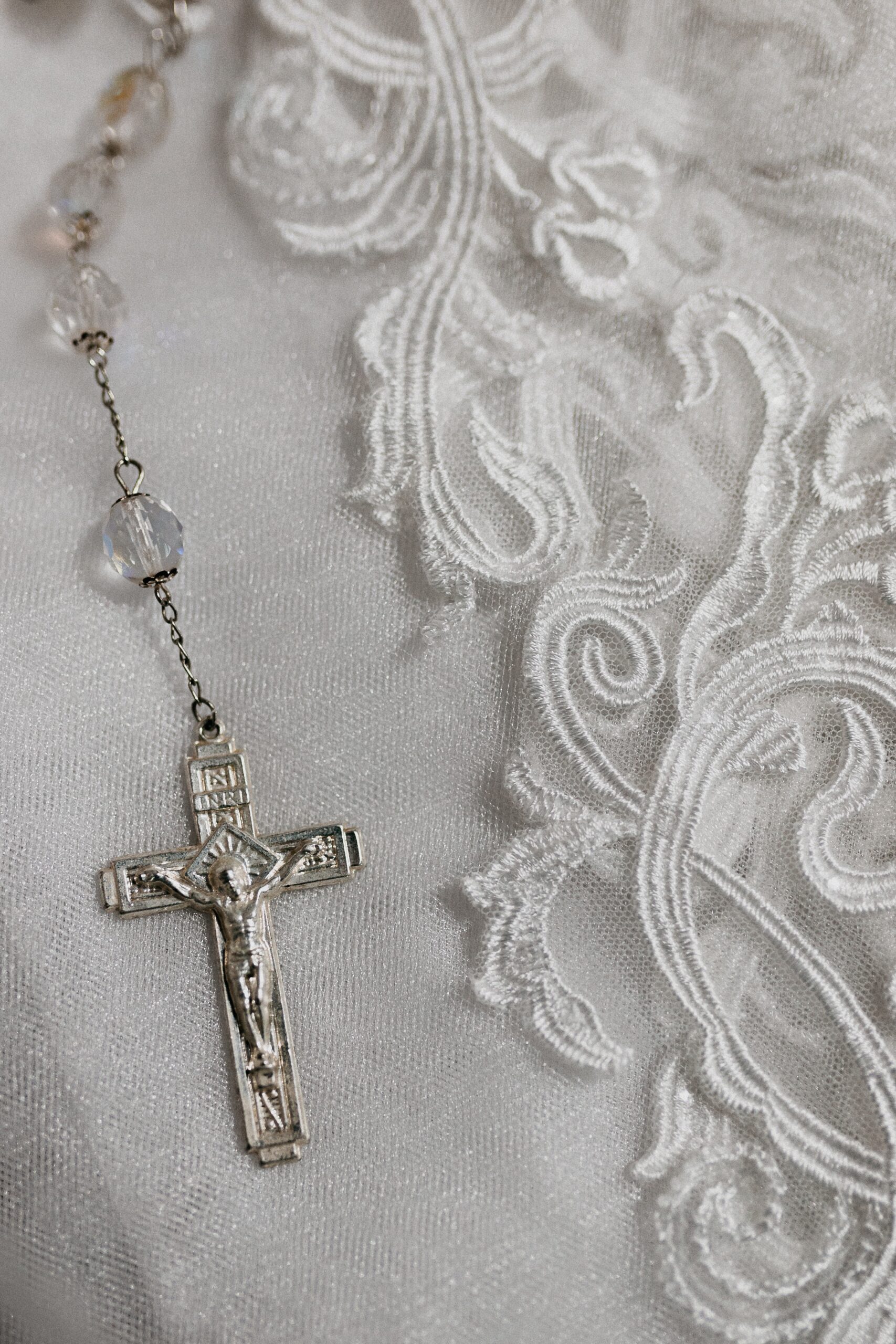

Marriage
The pastor asks couples seeking marriage in the Church to contact him at least six months prior to their desired wedding date and BEFORE they book a venue for their reception.
The decision to marry is momentous … as is the commitment to a lifelong and exclusive relationship of love. It is essential that couples make the time to prepare well before promising to give themselves to each other as husband and wife for the rest of their lives before God and the Church.
The theology of marriage and family developed by the Church from Scripture and Tradition is at once beautiful and challenging, and God’s plan for family life is faithfully lived out only with the help of His grace.
Marriage preparation or pre-Cana gives couples the opportunity to deepen their understanding and appreciation for the nature of marriage and family. It also helps identify important relationship issues they might not have thought about discussing, and provides a context for resolving any differences an honest look at those issues might bring to the surface.
Sacrament of the Sick
Also called the anointing of the sick, this is a sacrament of healing for those suffering with any serious health condition in body, mind or spirit (i.e. cancer, addiction, clinical depression). Serious is more of a subjective than objective term, and a given affliction might be more serious for one person than another based on the effects it has on the person’s life.
To give some sense of the conditions which would warrant celebration of the sacrament, one wouldn’t receive it for a bad cold or a sprained ankle, but might need it for severe pneumonia or a broken hip, especially if an elderly person is involved, since these things could prove seriously debilitating or even life threatening.
Strictly speaking, the sacrament of the sick does not constitute Last Rites by itself, though it may be part of that celebration. To receive Last Rites is to receive communion as viaticum, or food for the journey home to God. The following paragraphs offer further clarification on sacraments for the sick and dying.
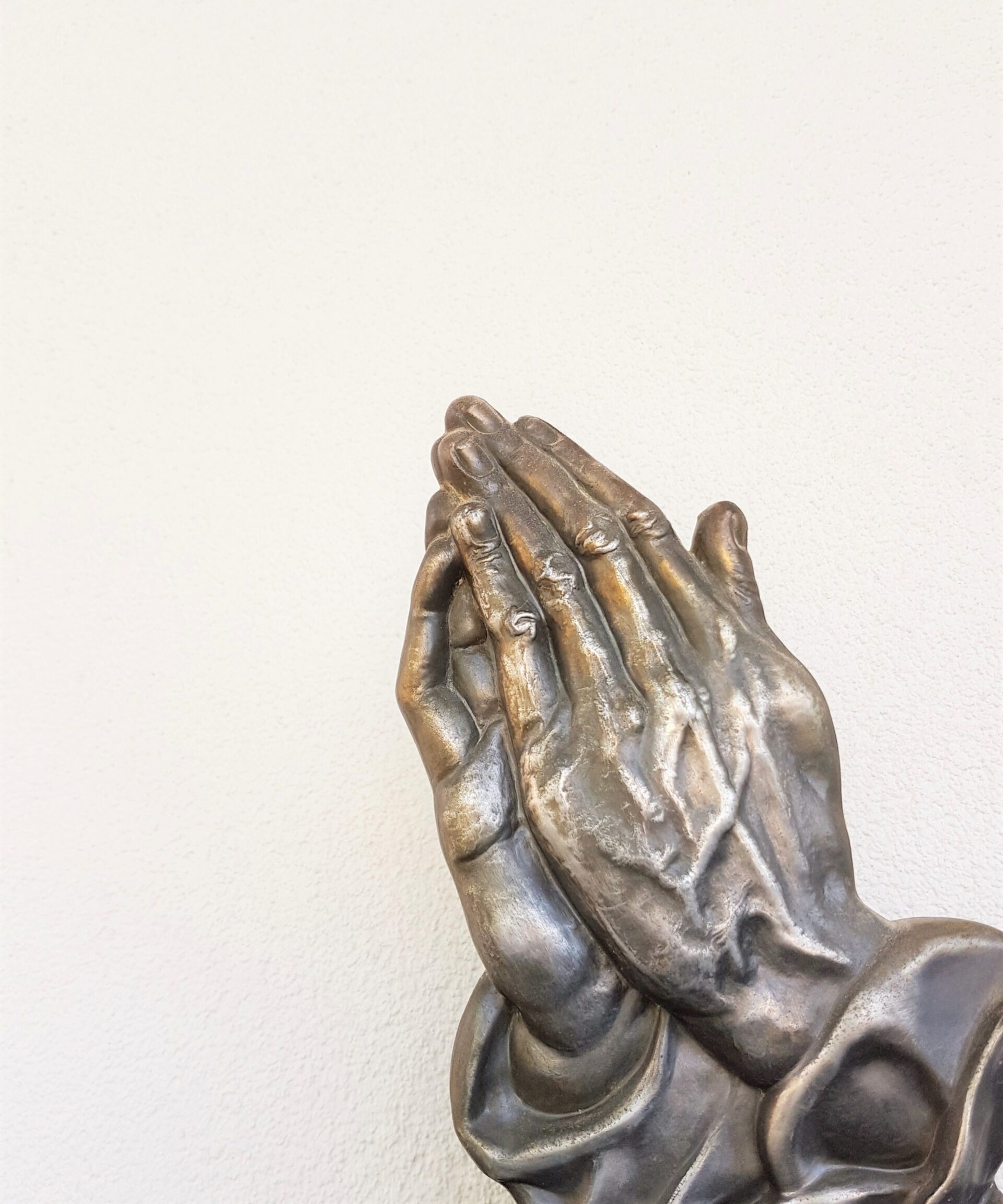
In order for the faithful people of God to receive all the sacraments in times of serious illness, injury, and / or near the time of death, it is extremely important to notify the pastor as soon as any of these events occur. Sacraments may only be celebrated by the living; they cannot be celebrated after death.
Furthermore, the sacrament of reconciliation can only be celebrated when a person still has the ability to communicate. Even more importantly, receiving communion as viaticum, which is what Last Rites are, is only possible while a person is still able to swallow, even if only a small piece of the Body of Christ, or a drop of his Precious Blood.
Please do not wait to inform the pastor of a loved one’s serious health condition until death is imminent, but contact him at the onset of any serious event, so that he or she may receive all the sacraments needed, as often as is needed, until either recovery or death occurs.
Sometimes things happen very quickly, and the timely celebration of sacraments is not always possible. A person can be anointed even if unconscious, but the sacrament of anointing of the sick does not constitute Last Rites by itself. It can be part of that celebration if needed, but to receive communion as viaticum is to receive Last Rites, and every measure should be taken to see that this can be done.
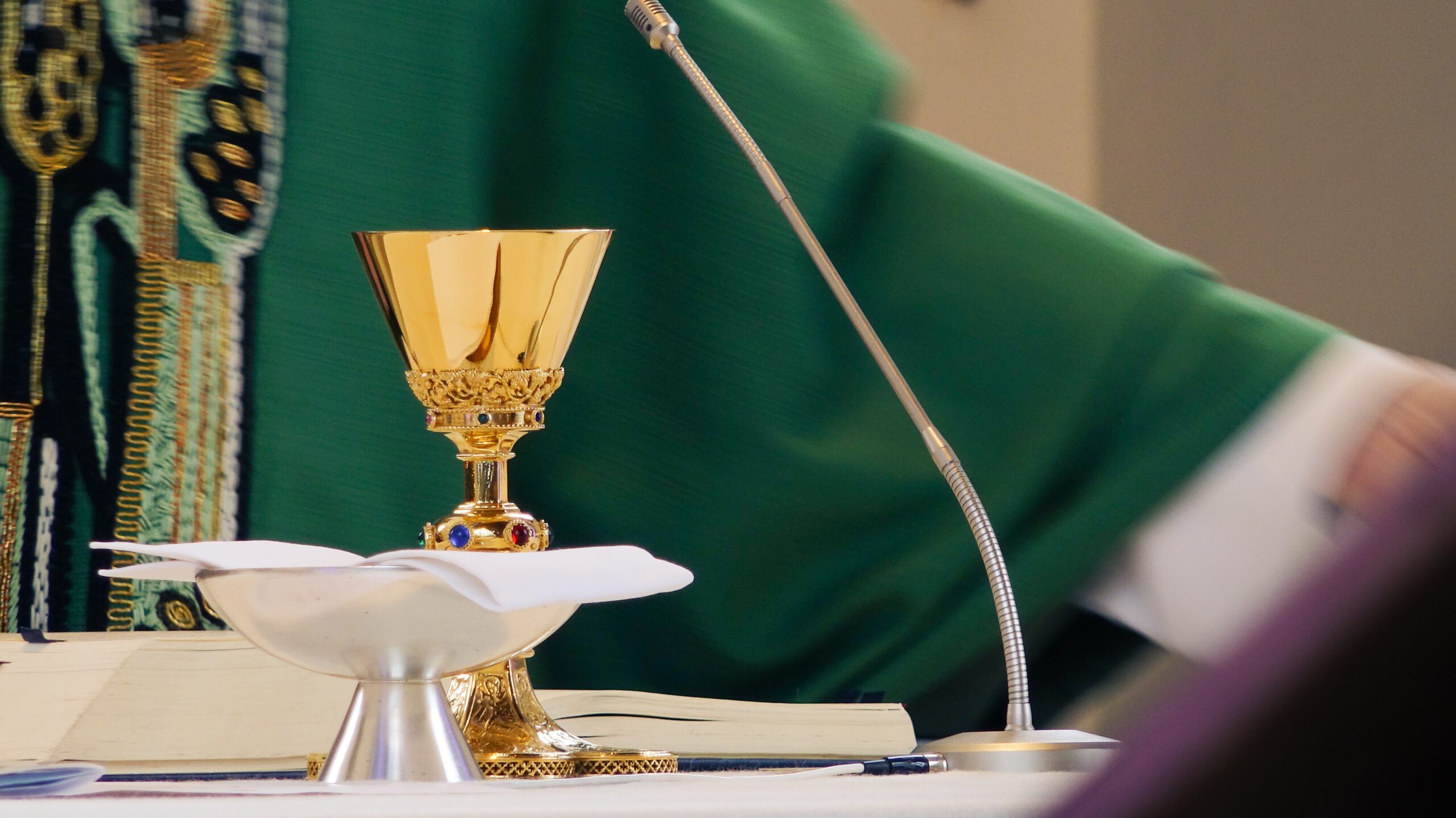
Holy Orders
If you feel like God might be calling you to priesthood or religious life, or if someone has ever told you you’d make a good priest or nun, please call the pastor to make an appointment. He can begin to help you discern what the Holy Spirit is trying to tell you through this experience of feeling called by God to serve the Church as a priest, deacon, brother, sister or nun.
Connect
Locations
Sacred Heart Church
27 Harper Street
Stamford, NY 12455
St. Philip Neri Church
60676 NY-30
Grand Gorge, NY 12474
Weekly Mass Times
Sacred Heart Church, Stamford
Saturdays—4:30 PM Vigil Mass
Wednesdays--9 AM and Fridays—Noon
Reconciliation/Confession—Fridays @ 11:00 am and Saturdays 3:30-4:15 or by appointment
St. Philip Neri, Grand Gorge
Sundays—8:00 AM
Reconciliation/Confession—Sundays 7:30-8:00AM
Contact Us
Sacred Heart Rectory/Parish Office
27 Harper Street
Stamford, NY 12167
Office Hours:
Tuesday, Wednesday & Thursday
9:00 am - 2:00 pm
Phone: (607) 652-7170
email: SHStamfo@rcda.org
